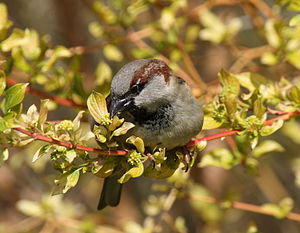In today’s miracle supermarket weight loss scheme, we have the secrets of the Biggest Loser. She eats her carbs before noon, in accordance to fitness guru X (sorry, fitness guru X, I don’t recall your name).
So I went looking for this miracle cure. Just eat all those pesky carbs before noon. A donut at 11:59 burns off like smoke, but at 12:01 it plunks down, down, down to the hips.
I didn’t find it. In fact, people who lose weight and keep it off are more likely to have five meals a day (BLD and two snacks). Eating more frequently leads to less fluctuation, but they were just less hungry. Even children eating more frequently are less likely to be obese. Post-menopausal women who snacked before noon were more likely to gain weight than those who snacked in the afternoon or evening. In a study of controlled food intake, the time of day of snacking had no effect on total calories eaten and the test subjects only felt more hungry if they were deprived of a snack before noon.
So, what’s the answer? Nibbling. Nibble your food. It worked for all these thin college women. If you get the sense that perhaps I don’t think one size fits all in this situation, you’d be right. I’m all for individual variation, but I may try nibbling. I’ve always been more of an engulfer, a swallow it whole kind of person. Nibbling is a pleasing notion. Look for me at parties, perched on a chair, nibbling something like a squirrel.
Nibbling: frequency and relationship to BMI, pattern of eating, and shape, weight, and eating concerns among university women.
Source
Regional Eating Disorder Service, Division of Mental Health and Addiction, Oslo University Hospital-Ullevål, N- 0407, Oslo, Norway. debreas@gmail.com
Abstract
OBJECTIVE:
Nibbling has been defined by the Eating Disorder Examination (EDE 16.0) as eating in an unplanned and repetitious manner between meals and snacks without an accompanying sense of loss of control. We investigated the nature and frequency of nibbling in young women.
METHOD:
Fifty-eight university women aged 19-41 years with an average BMI of 22.8 (4.8) were administered the EDE-interview.
RESULTS:
Only 9% of women reported no nibbling during the preceding 28 days, 14% nibbled on 1-5 days; 40% on 6-12 days; 21% on 13-15 days and 17% nibbled on 16-28 days. Nibbling was not significantly related to BMI, frequency of meals, binge eating, dietary restraint, or shape, eating, or weight concerns. Significant inverse relationships were found between nibbling and food avoidance (-.27, p=.03) and sensitivity to weight gain (-.26; p=.04).
DISCUSSION:
Nibbling occurred frequently among young women but did not appear to have significant consequences for BMI, the overall pattern or eating, shape or weight concerns, or for any measured pathological eating behaviors.
Copyright © 2011 Elsevier Ltd. All rights reserved.
- PMID: 22177400
Related articles
- Biggest Loser MD Deluded, Unethical or Clueless? (weightymatters.ca)
- Weight Loss Tips… (gigikitty.wordpress.com)
- Former Biggest Loser contestant becomes an inspiring winner (examiner.com)
- How to lose weight when you’re already healthy? (ask.metafilter.com)
- Weight Loss Tip (positiveboomer.wordpress.com)
- Before And After: Jeremy Britt Loses 199 Pounds To Win ‘The Biggest Loser: No Excuses’ (inquisitr.com)
- The advantage of weight lost (indigitalplr.wordpress.com)
- The effects of reality television on weight bias: an examination of The Biggest Loser. (obesitynwpctl.wordpress.com)
- What if they picked a new “Biggest Loser” and nobody cared? (pbpulse.com)
Tagged: Biggest Loser, eat, health, Oslo, Physical exercise, Programs, Shopping, weight loss





















